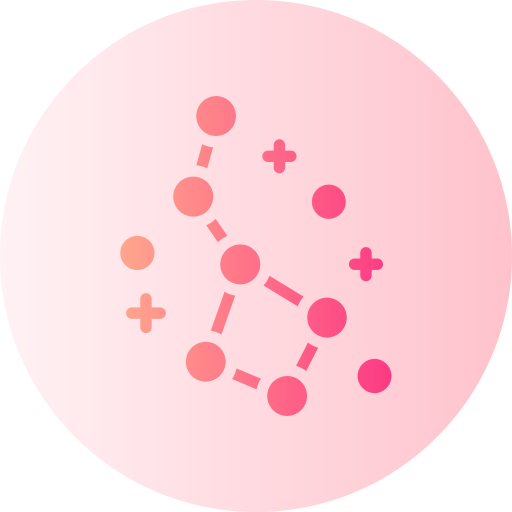NIPT Microdeletion Test in Dubai | Microdeletion
A microdeletion in the context of Non-Invasive Prenatal Testing (NIPT) refers to a small deletion or loss of a segment of a chromosome that is screened for during prenatal genetic testing. Chromosomes are structures within cells that contain the genetic material, and any alterations, including deletions, can lead to genetic disorders or conditions.
In NIPT, the term "microdeletion" specifically refers to the detection of tiny missing segments of chromosomes that are associated with certain genetic disorders or syndromes. These microdeletions involve the loss of a small piece of genetic material from a chromosome, which can disrupt the normal functioning of genes within that segment and lead to specific health conditions or developmental issues in the fetus.
Some of the commonly screened microdeletions in NIPT include:
- 22q11.2 Deletion Syndrome (DiGeorge Syndrome/Velocardiofacial Syndrome)
- 1p36 Deletion Syndrome
- 5p- (Cri-du-chat Syndrome)
- Prader-Willi Syndrome (PWS) and Angelman Syndrome (AS)
- 15q11.2 Deletion Syndrome
Detection of these microdeletions through NIPT can provide valuable information to expecting parents about the potential risk of their unborn child developing certain genetic disorders. However, it is important to note that a positive NIPT result for a microdeletion should be confirmed with additional diagnostic testing, such as chorionic villus sampling (CVS) or amniocentesis, and further evaluated by a genetic counselor or healthcare provider to discuss the implications and potential management options.
Understanding Genetic Disorders Associated with Microdeletions
1. 22q11.2 Deletion Syndrome (DiGeorge Syndrome/Velocardiofacial Syndrome)
Overview: 22q11.2 Deletion Syndrome, also known as DiGeorge Syndrome or Velocardiofacial Syndrome, is caused by the deletion of a small segment of chromosome 22. Individuals with this syndrome may experience a range of health issues, including heart defects, immune system deficiencies, cleft palate, and characteristic facial features. Behavioral and learning challenges are also common.
Impact: The varied symptoms make the diagnosis challenging, and early intervention is crucial. Genetic counseling is often recommended to provide support and guidance for families navigating the complexities of this syndrome.
2. 1p36 Deletion Syndrome
Overview: 1p36 Deletion Syndrome results from the loss of genetic material from the short arm of chromosome 1. Common characteristics include developmental delays, intellectual disabilities, and distinctive facial features. Individuals with this syndrome may also exhibit seizures, vision and hearing impairments, and cardiac anomalies.
Impact: Management involves a multidisciplinary approach to address the diverse range of symptoms. Families benefit from comprehensive support services, including therapeutic interventions and medical monitoring.
3. 5p- (Cri-du-chat Syndrome)
Overview: Cri-du-chat Syndrome arises from a specific deletion on the short arm of chromosome 5. The syndrome is named after the distinctive cat-like cry often observed in affected infants. Individuals with Cri-du-chat may face developmental delays, intellectual disabilities, and unique facial features.
Impact: Early intervention, including speech and physical therapy, is essential for maximizing developmental outcomes. Support from healthcare professionals and educational specialists helps families navigate the challenges associated with this rare genetic disorder.
4. Prader-Willi Syndrome (PWS) and Angelman Syndrome (AS)
Overview: Prader-Willi Syndrome and Angelman Syndrome are distinct genetic disorders resulting from abnormalities in the same region on chromosome 15. PWS is characterized by hyperphagia, leading to severe obesity, intellectual disabilities, and behavioral challenges. AS, on the other hand, presents with developmental delays, seizures, and a happy demeanor.
Impact: Management strategies focus on addressing the unique challenges of each syndrome. Early intervention, dietary control, and supportive therapies play crucial roles in enhancing the quality of life for individuals with PWS or AS.
5. 15q11.2 Deletion Syndrome
Overview: 15q11.2 Deletion Syndrome involves the loss of genetic material on chromosome 15 and can manifest with developmental delays, intellectual disabilities, and behavioral issues. Individuals with this syndrome may share features with Prader-Willi and Angelman Syndromes.
Impact: Early identification and intervention are key in managing the challenges associated with 15q11.2 Deletion Syndrome. Families benefit from comprehensive care plans that address both medical and developmental needs.
Understanding these genetic disorders associated with microdeletions emphasizes the importance of early detection, comprehensive care, and ongoing support for affected individuals and their families. Genetic counseling plays a crucial role in providing guidance, education, and emotional support throughout the diagnostic and management processes.
Does NIPT test for microdeletions?
Yes, Non-Invasive Prenatal Testing (NIPT) can test for certain chromosomal microdeletions. NIPT is primarily known for its ability to screen for common chromosomal aneuploidies, such as trisomy 21 (Down syndrome), trisomy 18 (Edwards syndrome), and trisomy 13 (Patau syndrome), by analyzing fragments of fetal DNA present in the maternal bloodstream.
In addition to these common aneuploidies, some NIPT panels also include screening for specific chromosomal microdeletions associated with certain genetic disorders or syndromes. These microdeletions involve the loss of a small segment of a chromosome and can lead to various health conditions or developmental challenges in the fetus if present.
Some of the commonly screened microdeletions in NIPT include:
- 22q11.2 Deletion Syndrome (DiGeorge Syndrome/Velocardiofacial Syndrome)
- 1p36 Deletion Syndrome
- 5p- (Cri-du-chat Syndrome)
- Prader-Willi Syndrome (PWS) and Angelman Syndrome (AS)
- 15q11.2 Deletion Syndrome
- It is important to note that the specific microdeletions included in an NIPT panel may vary depending on the laboratory and the testing platform used. Additionally, while NIPT can detect these microdeletions with high sensitivity, a positive result should be confirmed with additional diagnostic testing, such as chorionic villus sampling (CVS) or amniocentesis, and further evaluated by a genetic counselor or healthcare provider to discuss the implications and potential management options.
NIPT Microdeletion Test Cost in Dubai - Aed 3000








